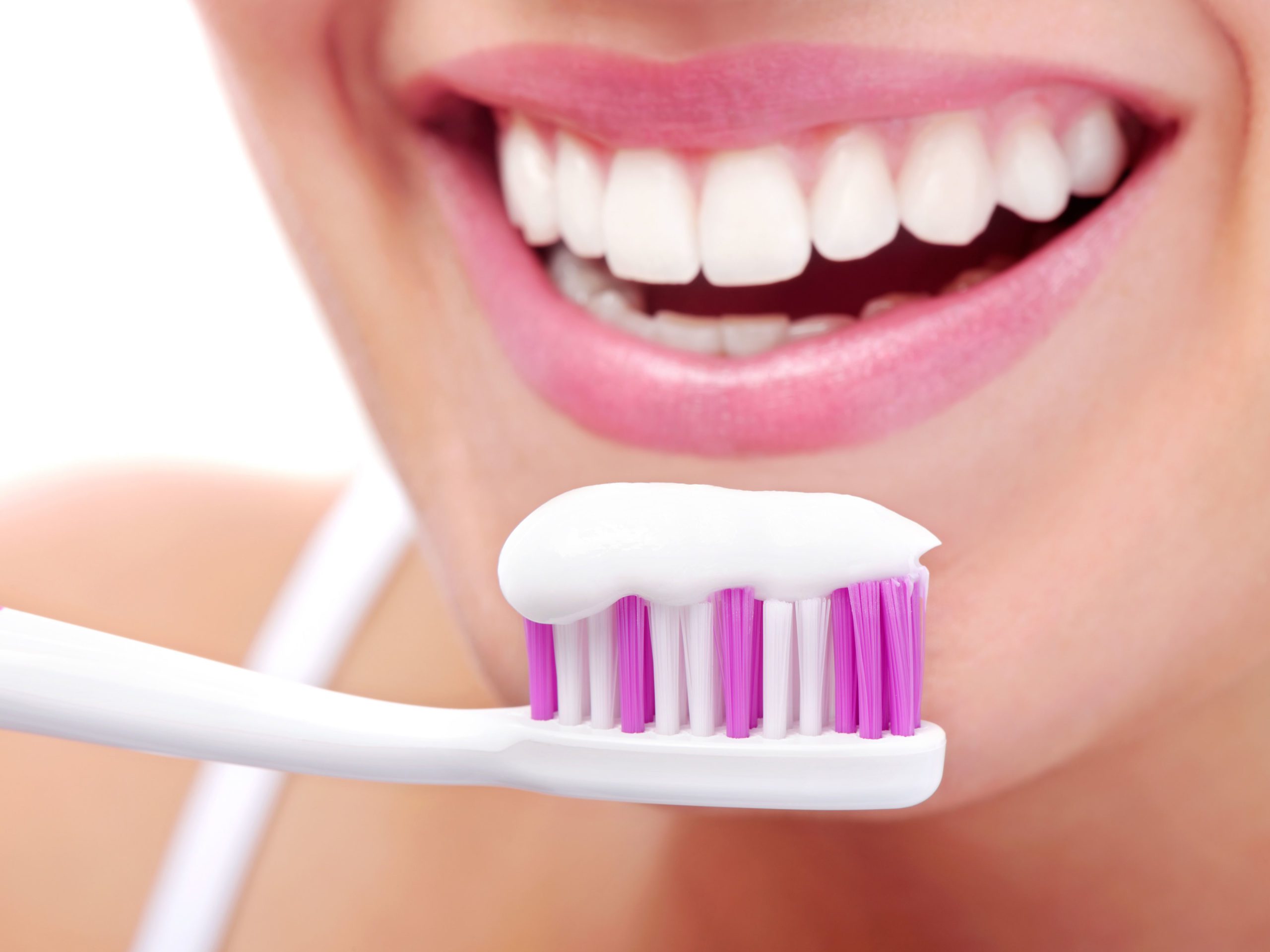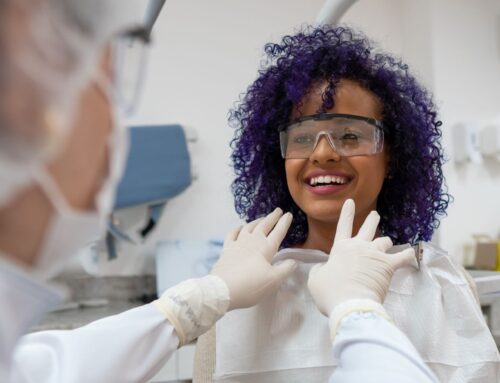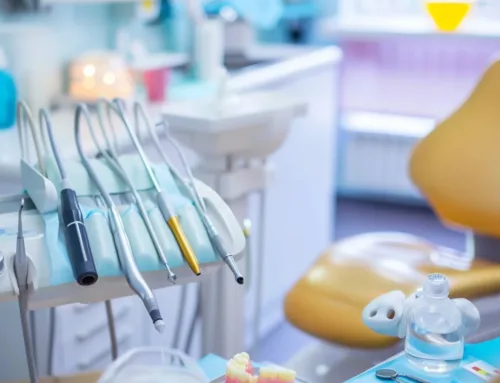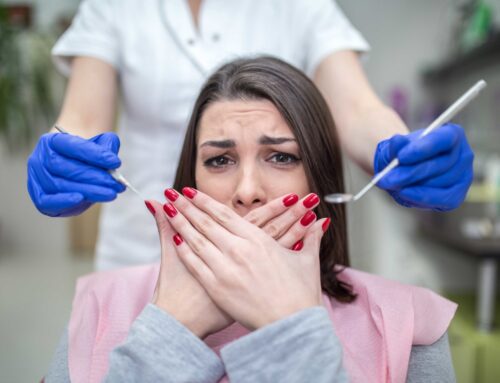How to Choose the Right Toothbrush and Toothpaste
Choosing the right toothbrush and toothpaste is essential for maintaining good oral health, but with so many options available, it can be overwhelming. We want to help inform you on the different options, and the pros and cons of each, to help you make the right decision for your mouth.
The Importance of Oral Hygiene
Before diving into the specific options out there for toothbrushes and toothpaste, it’s important to understand why maintaining good oral hygiene is so important. Your oral health is not just about keeping your teeth white and your breath fresh. It’s a critical component of your overall health. Poor oral hygiene can lead to various issues, including cavities, gum disease, and even more serious health problems such as heart disease or diabetes.
It’s also very important that you understand that good oral hygiene does not mean brushing as often and as vigorously as you can. Doing so can cause great harm to your gums and enamel. It is important to find a routine that works for you, to keep plaque away without damaging your gums or enamel.
Regular brushing and flossing, along with routine dental visits, are key to preventing these issues from arising. However, in between dental visits, the effectiveness of your daily oral care routine can be significantly influenced by the tools you use – specifically your toothbrush and toothpaste.
Choosing the Right Toothbrush – Manual vs. Electric
Manual toothbrushes have been around for decades and are a tried-and-true option. They are easy to use, affordable, and readily available. However, their effectiveness largely depends on the user’s brushing technique. For those who are diligent and consistent with their brushing, a manual toothbrush can be just as effective as an electric one.
Electric toothbrushes, on the other hand, offer several advantages. This is especially true for individuals who struggle with manual dexterity or who may not be as thorough with their brushing. The oscillating or vibrating bristles can help remove more plaque and bacteria compared to a manual brush. Many electric toothbrushes also come with built-in timers to help ensure you’re brushing long enough. The recommended time is two minutes! Some electric toothbrushes even offer pressure sensors to prevent brushing too hard.
At Georgian Dental, we recommend electric toothbrushes for patients with specific dental needs, such as those with braces, gum disease, or arthritis. However, a high-quality manual toothbrush can be just as effective if properly used.
Toothbrush Bristle Type
Toothbrush bristles come in various types, and choosing the right one is crucial for protecting your gums and tooth enamel while ensuring a thorough clean.
Soft Bristles
Soft-bristle toothbrushes are most commonly recommended by dentists. They are gentle on your gums and enamel, making them a safe choice for most people. Soft bristles, which is the gentlest of the three types of toothbrushes, can still effectively remove plaque and debris from the surface of your teeth without causing any unnecessary damage.
Medium Bristles
Medium-bristle toothbrushes can be a good option for individuals with healthy gums and strong enamel. However, if used too aggressively, they can lead to gum recession and enamel wear.
Hard Bristles
Hard-bristled toothbrushes are generally not recommended by dental professionals. While they may seem like the most effective choice for scrubbing away plaque, they can cause severe damage to your gums and enamel over time. This leads to increased sensitivity and other more serious dental issues.
If you are unsure about what type of bristles you should use, don’t be afraid to ask our dental team at your next visit!
Toothbrush Head Shape and Size
The size and shape of your toothbrush head are also important considerations. A toothbrush head that is too large may not reach the back molars or other hard to reach areas, while a head that is too small may not cover enough surface area with each brush.
Standard Toothbrush Heads
These are usually sufficient for most people. They offer a good balance of coverage and maneuverability, making them suitable for daily use.
Compact Toothbrush Heads
Compact toothbrush heads are smaller and can be more effective for reaching tight spaces, such as around braces or dental implants. They are also a good option for children or individuals with smaller mouths.
Angled Toothbrush Heads
Angled toothbrush heads are designed to make it easier to reach the back teeth and clean along the gumline. They can be particularly useful for individuals with crowded teeth or other alignment issues.
Make sure that you choose a toothbrush head that fits comfortably in your mouth and allows you to reach all areas of your teeth. If you have specific dental concerns, such as braces or implants, a compact or angled head may be more suitable.
Choosing the Right Toothpaste
Toothpaste is a critical component of your oral care routine. The right toothpaste can help prevent cavities, reduce sensitivity, and improve the overall health of your gums. However, with so many options available, it can be challenging to know which one is best for your needs.
Fluoride Content
Fluoride is a naturally occurring mineral that helps strengthen tooth enamel and prevent cavities. Most dental professionals, including our team at Georgian Dental, recommend using a toothpaste that contains fluoride as part of your daily oral care routine.
Did you know that some towns and cities add fluoride into the drinking water? The city of Barrie, however, does not.
Fluoride toothpaste is widely available and comes in many varieties. It is effective at preventing tooth decay and is recommended for both adults and children. If you live in an area where the water supply is not fluoridated, fluoride toothpaste becomes even more important.
Non-Fluoride Toothpaste
Some individuals prefer non-fluoride toothpaste for personal or health reasons. While non-fluoride toothpaste can still help to remove plaque and freshen your breath, it may not provide you with the same level of protection against cavities as fluoride toothpaste.
If you have concerns about ingesting fluoride, our team is happy to discuss the pros and cons of fluoride, as well as discuss alternative options with you.
Toothpaste Options for Sensitive Teeth
If you experience tooth sensitivity, you may benefit from a toothpaste specifically formulated for sensitive teeth. These toothpastes contain ingredients like potassium nitrate or stannous fluoride, which help to block the pathways to the nerves inside the teeth, reducing sensitivity to hot, cold, and sweet foods.
Many brands offer toothpastes for sensitive teeth, including easy-to-find grocery store brands like Sensodyne, Colgate Sensitive, and Crest Pro-Health. These toothpastes are available in various flavours and formulations, so you can choose the one that suits your preferences.
Sensitive teeth toothpastes often do not work immediately. You need to use them regularly to see the benefits. If you have sensitivity issues, please mention them during your next dental visit so we can provide personalized recommendations based on the severity of sensitivity.
Natural and Organic Toothpaste
For those who prefer to use natural or organic products, there are several toothpastes available that contain natural ingredients like baking soda, coconut oil, and essential oils. These toothpastes are free from artificial colours, flavours, and preservatives, making them a popular choice for health-conscious individuals.
While natural toothpastes can be effective at cleaning your teeth and freshening your breath, it’s important to ensure they contain fluoride or other cavity-fighting ingredients. Some natural toothpastes may not provide the same level of protection against cavities as conventional toothpastes.
Oral Care Routine Musts
- Replace Your Toothbrush Regularly
Regardless of the type of toothbrush you use, it’s important to replace it regularly. Over time, toothbrush bristles can become frayed and less effective at cleaning your teeth. We recommend replacing your toothbrush or toothbrush head every three to four months.
If you find your bristles are wearing out sooner than three months, you can replace them more frequently. If you’ve been sick, it’s also a good idea to replace your toothbrush to prevent reintroducing bacteria into your mouth.
- Brush Twice a Day, Every Day
Brushing twice a day – once in the morning, and once before bed – is essential for maintaining good oral hygiene. Make sure to brush for a minimum of two minutes each time, focusing on all areas of your mouth, including the front, back, and chewing surfaces of your teeth.
- Don’t Forget to Floss!
While choosing the right toothbrush and toothpaste is important, there’s a reason your dental hygienist reminds you to floss at every visit! Flossing is an extremely important step that should be done at least once a day. It helps to remove plaque and food particles from between your teeth and along your gumline, areas that your toothbrush can’t reach.
- Consider Mouthwash for Added Protection
Mouthwash can be a beneficial addition to your oral care routine, especially if you’re worried about gum disease, cavities, or bad breath. Antimicrobial mouthwashes can help reduce bacteria in your mouth. Fluoride mouthwashes can provide additional cavity protection. Remember, don’t rinse your mouth, or eat or drink for at least 30 minutes after rinsing with mouthwash to get the full benefits.
Mouthwash is a great addition to your routine but should never be used as a substitution for brushing and flossing.
- Regular Dental Checkups
Even with the best at-home oral care routine, regular dental checkups are essential for maintaining your oral health. At Georgian Dental, we recommend scheduling a dental cleaning every six months. During these visits, we can assess your oral health, address any concerns, and provide personalized recommendations for your oral care routine.
How Georgian Dental Can Help
At Georgian Dental, we’re committed to helping our patients achieve and maintain optimal oral health. Our experienced dental team is here to provide personalized advice and recommendations based on your individual needs. Whether you’re unsure about which toothbrush is right for you, or you have specific oral health concerns, we’re here to help!
Personalized Appointments
If you’re unsure about which oral care products are best for you, we encourage you to schedule an appointment with our team. During your visit, we can assess your oral health, discuss your concerns, and recommend the best toothbrush, toothpaste, and other products for your needs.
Professional Dental Cleanings
In addition to your at-home oral care routine, regular professional cleanings are essential for maintaining healthy teeth and gums. Our dental hygienists use specialized tools to remove plaque and tartar buildup, which can’t be removed by brushing and flossing alone. Professional cleanings can also help prevent gum disease and tooth decay.
Comprehensive Dental Care
At Georgian Dental, we offer a wide range of dental services to meet your needs, including preventative care, restorative treatments, cosmetic dentistry, and more. Whether you need a routine checkup, a filling, or a more complex procedure, our team is here to provide you with the highest level of care.
Choosing the right toothbrush and toothpaste is a critical part of your oral care routine. By selecting products that meet your unique needs, you can help prevent cavities, gum disease, and other oral health issues. At Georgian Dental, we’re here to support you in maintaining a healthy smile.
If you have any questions or need personalized advice, please don’t hesitate to reach out to your team.
Your oral health is our top priority, and we’re committed to helping you achieve and maintain a beautiful, healthy smile.
Appointment Request
If you’re interested in any of our procedures, and would like to meet with one of our dentists to discuss options, costs and get additional information, complete this short form and we’ll give you a call to arrange for a no-obligation appointment at our Barrie clinic.










